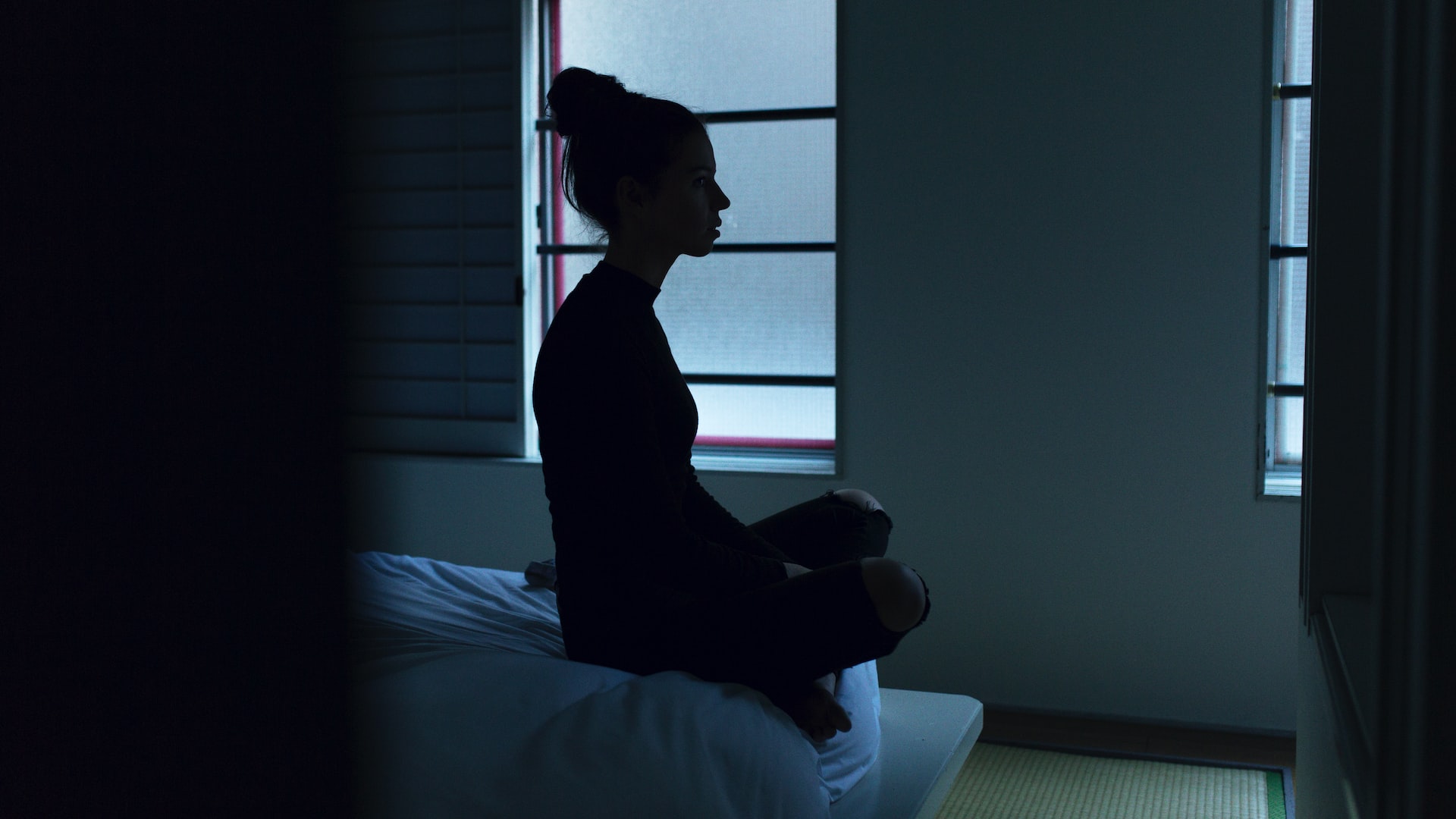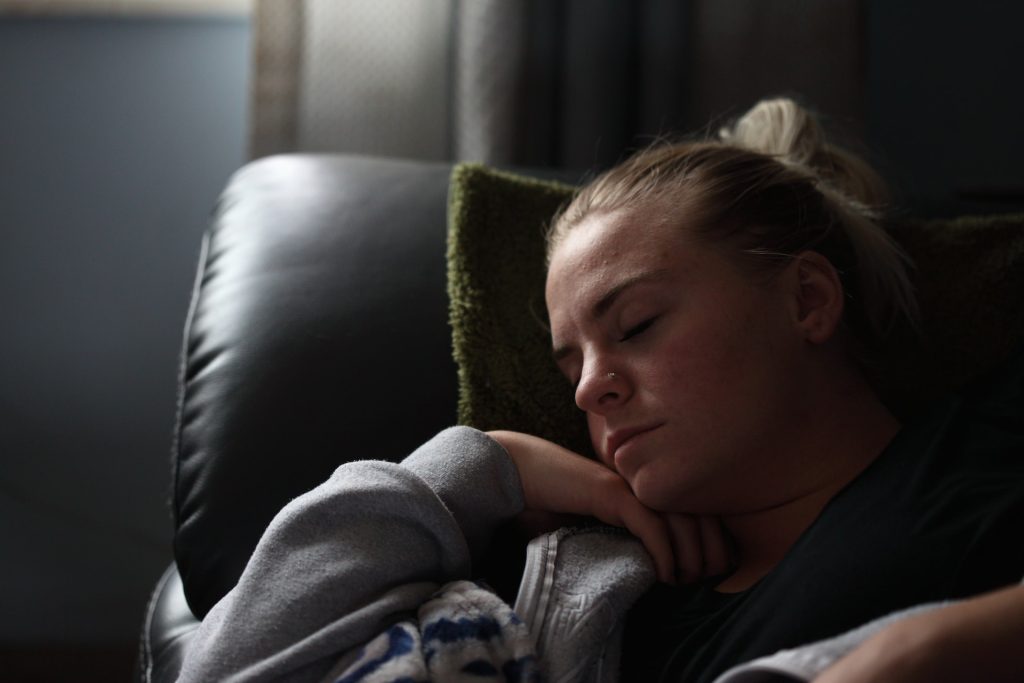
Image by Unsplash
Do you often wake up with night sweats in the middle of the night? If so, you could be suffering from night sweats, a common disease that can make it challenging to relax and enjoy a good night’s sleep.
According to research, among the patients who saw primary care doctors, 41% of them reported that they wake up with night sweats. These cases of excessive nighttime sweating were unrelated to an overheated room, an excess of blankets, or overly-insulating pyjamas.
Even though night sweats are not harmful, they may sometimes be a sign of an infection, anxiety or a hidden medical issue. Some women report waking up with night sweats during their period. Continue reading to discover more about the reasons for night sweats, treatments, frequently asked questions, and more.
What are Night Sweats?
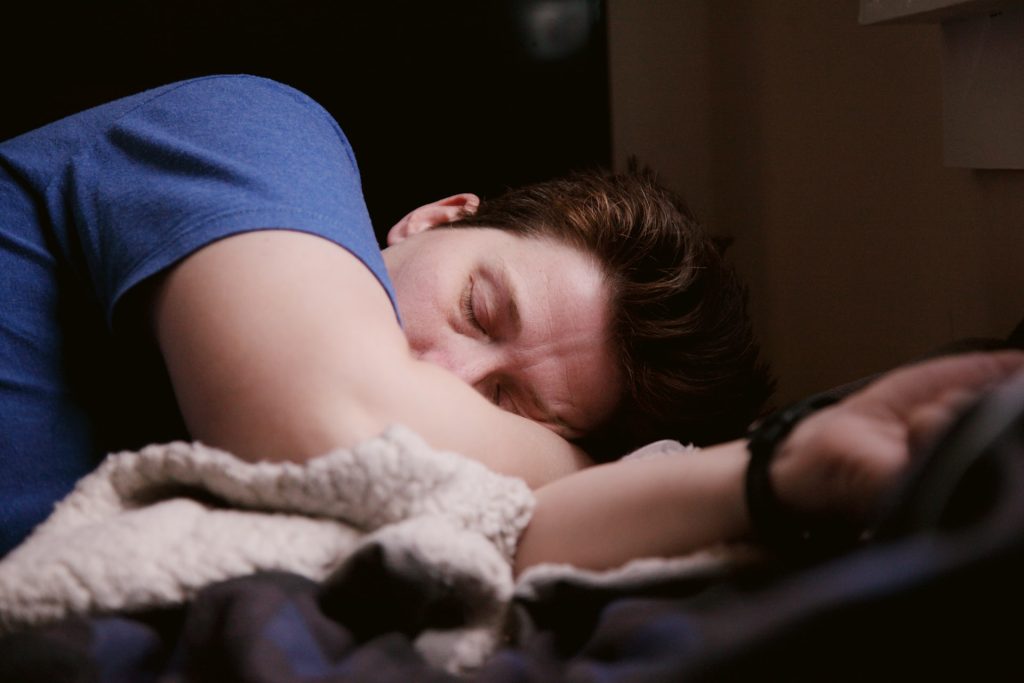
Image by Unsplash
Sleep hyperhidrosis may cause you to wake up with night sweats, which are periodic bouts of nighttime sweating that may soak your clothing and bedding. Even when the bedroom is set up to provide the best conditions for sleep, night sweats might still happen.
Reasons for Night Sweats
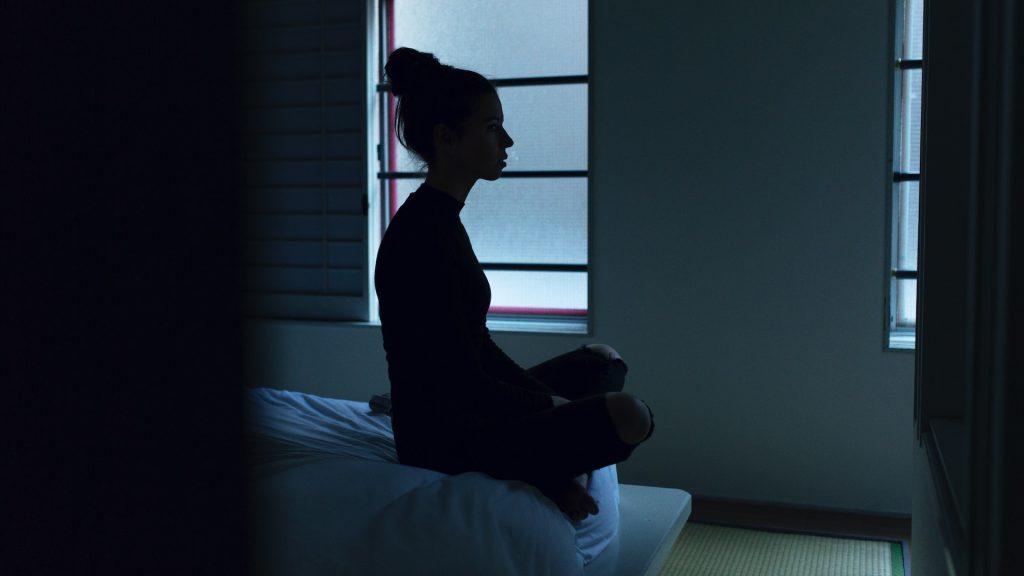
Image by Unsplash
Sleep disturbances result from nighttime excessive sweating. There are several potential reasons for night sweats, including hormonal imbalance, hypoglycemia brought on by diabetes, certain drugs, an uncomfortably cold environment, and viral or bacterial infections. Reasons for night sweats depends on situations.
1. Hormone Imbalance
Disorders caused by hormonal imbalances may sometimes result from the body’s failure to release the necessary amounts of a few hormones. Night sweats are a symptom of many common hormone diseases, including hyperthyroidism, carcinoid syndrome, and pheochromocytoma. You might also get night sweats when on your period.
2. Pregnancy
Due to changes in some hormonal secretions during pregnancy and the postpartum period, night sweats may occasionally be frequent. Another method for the body to release any extra fluids it may be holding onto is via perspiration.
3. Hypoglycemia
The body’s natural defensive system sets off a flight-or-fight reaction by releasing more adrenaline when hypoglycemia, or low blood sugar levels, occurs. Heavy sweating is a common side effect of this hormone. People with diabetes who use insulin may have nighttime blood sugar drops that result in night sweats.
4. Menopause
Up to 85% of women experiencing perimenopause and menopause report having significant hot flashes at night only, which are abrupt, dramatic increases in body temperature (often hot flushes or bursts of heat). They also frequently say that these menopausal symptoms are worse at night.
Hormone changes may cause nocturnal sweats and hot flashes at night only. Inquire about hormone treatment if your family doctor determines that the hot flashes that produce night sweats are a result of changes in estrogen and progesterone production. Hormone therapy may often reduce menopausal symptoms, including the hot flashes at night only that cause night sweats.
5. Night Sweats and Alcohol
It could seem like a good idea to relax with a nightcap. However, switching to a seltzer can make sense if you’ve been waking up sweating. Alcohol causes the skin’s blood vessels to enlarge, which may cause night sweats.
6. Symptomless Hyperhidrosis
A skin condition called hyperhidrosis is characterized by unnaturally high perspiration. Idiopathic hyperhidrosis is the term used to describe hyperhidrosis that develops on its own. Night sweats or sleep hyperhidrosis are the symptoms of this illness.
7. Night Sweats with Flu and Infections
Many infectious disorders, including TB, the human immunodeficiency virus (HIV), and bacterial infections, are known to cause night sweats as a side effect. The body’s natural reaction to being too hot or being exposed to an agent that causes sickness is perspiration. Night sweats with flu are also very common. So if you can’t figure out why, it’s most likely night sweats with flu.
8. Congestive Heart Failure (CHF)
It is a condition in which the heart is unable to pump effectively because of fluid accumulation surrounding it. Wheezing, exhaustion, an erratic pulse, and even night sweats are just a few signs and symptoms of CHF.
9. Cancer
Sweat-soaked sheets and blankets might indicate cancer such as leukemia, lymphoma, prostate cancer, or thyroid cancer. Other cancer-related symptoms in cancer patients, such as fever or an abrupt loss of appetite or weight often accompany night sweating.
10. Anxiety
It affects your neurological system. Your neurological system is always stimulated while you’re worried, which causes excessive perspiration. Anxiety nearly always results in perspiration, and it may even produce night sweats in those with nervous dispositions.
11. Psychiatric Disorder
The signs of a neurological condition might be caused by any anatomical, biochemical, or electrical abnormalities in the brain, spinal cord, or other nerves. Some neurological diseases, such as autonomic neuropathy, stroke, and autonomic dysreflexia, have been linked to night sweats.
12. Sleep Apnea
Night sweats might develop if sleep apnea is left untreated. A respiratory problem called sleep apnea causes brief interruptions in breathing while you’re asleep. This might sometimes cause choking or a snoring noise. Even without choking or snoring, sleep apnea may still be the cause of night sweats. Night sweats might occur when this illness is left untreated.
13. Obesity
Your body becomes more insulated when you are overweight, which prevents natural thermoregulation while you sleep. The body temperature rises and causes night sweats when your body is unable to control its temperature.
14. Some medications’ side effects
Night sweats are a common adverse effect of several medications, including acetaminophen, antidepressants, over-the-counter painkillers and fever reducers. Before searching reasons for night sweats, check medicines you are taking first.
How to Stop Night Sweats at Home?
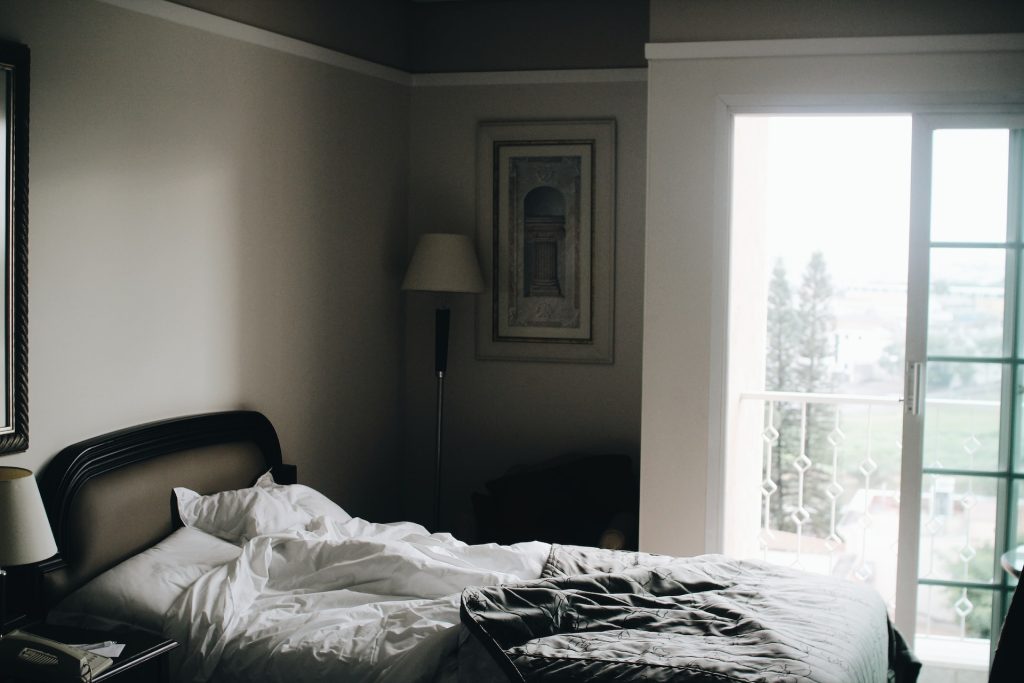
Image by Unsplash
Before you call your doctor if you often wake up with night sweats, go through a simple sleep hygiene checklist.
1. Make your room temperature comfortable
The hypothalamus, a brain region, controls how hot or cold we feel by regulating our body temperature. It is also responsible for putting us to sleep. The hypothalamus will have a more challenging difficulty concentrating energy on turning off the arousal signals and starting sleep if your body temperature is too high or too low.
Although it might be debatable, scientists agree that the most ideal room temperature is probably between 60 and 67 degrees Fahrenheit. Therefore, it is crucial to maintain a ideal room temperature at night. If it is too cold, you might suffer from night sweats with flu.
2. Wear comfortable clothes
Additionally, get pyjamas and bedding that feel softer on your skin. You could stop sweating if you wear breathable fabrics, such as cotton, linen, or bamboo. Typically, such claims about cooling fabric sheets are unsubstantiated. To put it another way, you need to put them to the test to determine whether they make it easier for you to fall asleep. You can wear warm or light clothes rather settingideal room temperature.
3. Keep an eye on your nightly routines
Do you eat, use alcohol, or engage in late-night exercise? Your night sweats might be caused by any of these causes. Before you go to bed, take into account what you are reading or viewing on television. Is it frightful or causes anxiety? It could be wise to change such habits.
Make an appointment with a therapist if you need assistance with depression or anxiety. Attempt to eliminate probable triggers from the hours before bed. Try taking steam or drinking warm water or tea if you have night sweats with flu.
4. Ensure you and your partner are sleep compatible
If you have a partner, you should also think about whether you sleep well together. The spouse who has night sweats may simply not be sleeping in the correct atmosphere if one of you likes to be very chilly at night while the other chills at any temperature below 70 degrees. It’s best to get the ideal room temperature, but if that’s not possible, a possible remedy is to use different blankets.
5. Change your sleep environment
You can assist in reducing your body temperature by altering your sleeping environment. You may be able to sleep deeply and manage intense hot flashes at night only by keeping your body temperature down.
Keep your bedroom cooler especially in summer. Use breathable, light bedding, and stay away from bulky pyjamas. If at all feasible, try running your air conditioner at night. Keeping a fan in your bedroom could also be beneficial. Maintain ideal room temperature to sleep well and be careful not to get night sweats with flu.
6. Make some changes in your diet and lifestyle
Sweating at night may often be reduced by changing your diet and lifestyle. Night sweats are also linked with alcohol consumption. Limit your alcohol, smoking, and caffeine intake. Before going to bed, stay away from hot beverages and spicy meals since they might make you sweat more.
7. Relaxation strategies
Using relaxation methods, which may be done at any time of the day, including before bed and when one wakes up from night sweats, can help alleviate anxiety or stress.
8. Use Alarmy
It is a perfect alarm app that also has tons of calming sounds to help you sleep in peace and improve your sleep hygiene. You can also maintain a morning record to record your morning moods and make amendments to your daily routine to help you sleep better. Download it here.
How to Treat it?
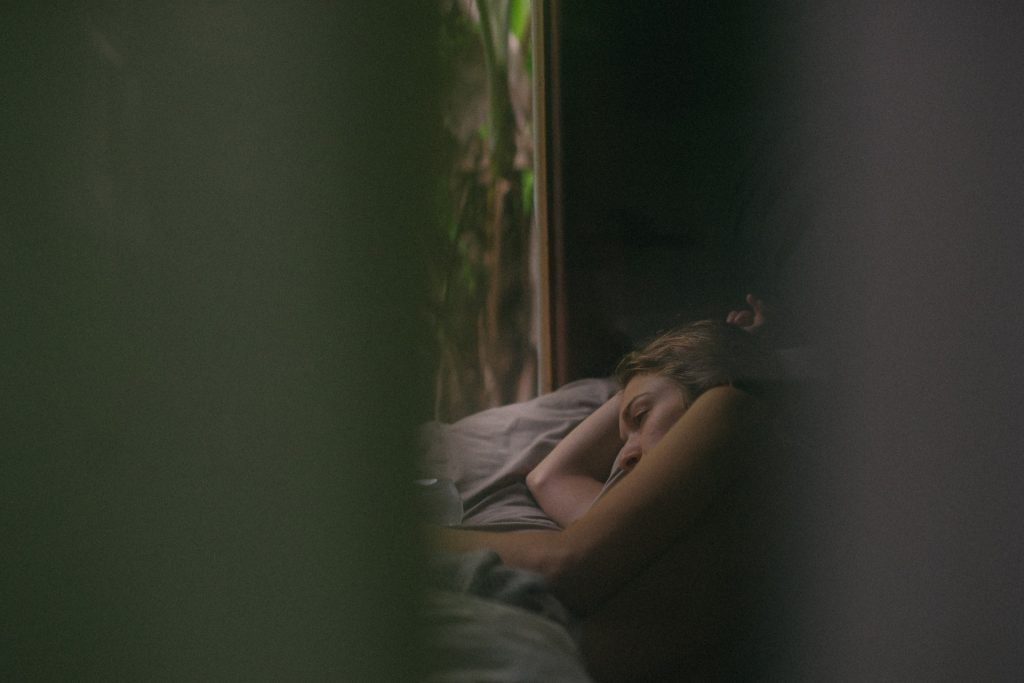
Image by Unsplash
Even though excessive sweating is usually a nuisance, night sweats make matters worse since they make it difficult to fall asleep. When your body is unable to adequately repair and regenerate itself due to sleep disruptions, you become exhausted and unable to carry out your daily tasks.
The cause of night sweats must be addressed to solve the issue. It will assist in solving the issue at its source. Consult a doctor to rule out the potential of an underlying medical condition if your sleeping environment is perfect.
Final Words
We advise seeing a doctor if you can’t find reasons for night sweats and often wake up with night sweats despite taking measures to create a cool, comfortable environment. The recommended course of treatment by physicians for night sweats may include hormone therapy or medicines.
Can’t Sleep? Check 2 Sleep Science Factors (Sleep Pressure & Circadian Rhythm)
